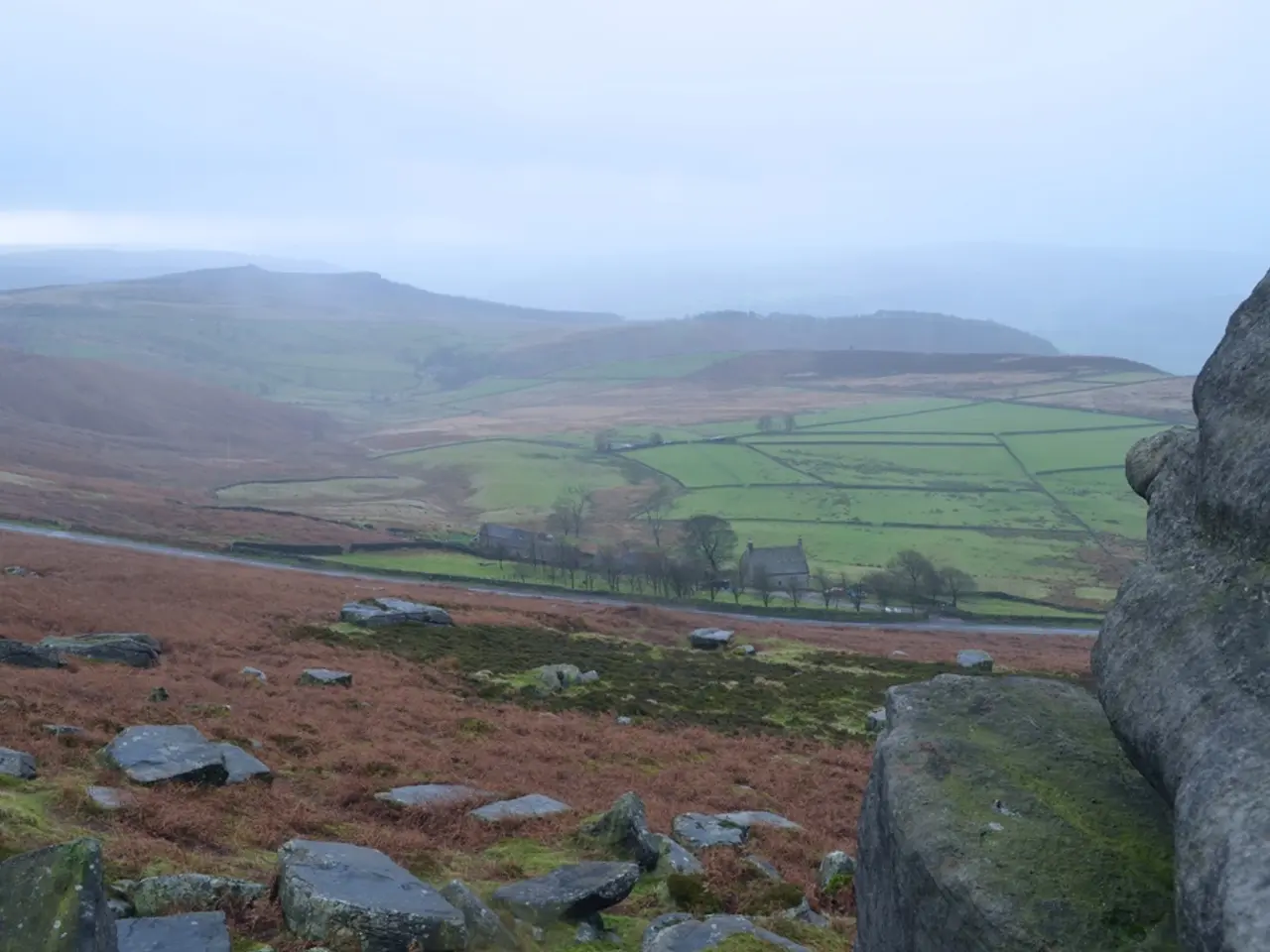Rural Advancement through Private Conservation and Ecotourism: An Examination in Ecuador
In the rural village of Mashpi, nestled within the borders of the Choco-Andino cloud forests in Ecuador, a population of no more than 200 people reside. This tranquil setting, however, has been disrupted by the complexities of land ownership and the rise of ecotourism.
Decades of land grabbing in Ecuador, including petroleum expansion and logging, have left a lasting impact on the people's perception of land tenure. The lack of governmental support and regulations in the country has led to the privatisation of activities and services, reinforcing the uneven distribution of power and wealth.
A luxurious hotel built for ecotourism exists a few kilometres from the village, offering a wilderness experience. However, outside of the boundaries of these private lands, the local community lacks economic resources and basic infrastructures for their day-to-day life.
The term "green grabbing" in Ecuador refers to the appropriation of land and resources for environmental ends, which can recreate new forms of colonialism and land grabbing, leading to the marginalization and sometimes relocation of local populations. The creation of the private nature reserve in Mashpi can be seen as a new form of colonialism, as it recreated power dynamics similar to those of the colonial history of the region.
In Ecuador, the government supports oil extraction due to its profitability, despite the country's wills to protect its lands and recent efforts to enhance indigenous rights and improve environmental protection. Land rights are poorly established across rural Ecuador, with land often belonging neither to the states nor to the people, leading to complications in the process of land titling.
Private conservation, including ecotourism, has seen its rise in recent years, especially in the Global South, where it is promoted as a means to protect environmental resources and promote local economic growth. Conservation projects in Ecuador are inherently embedded within local land tenure regimes, where land ownership is often overlapping or non-existent.
When interviewed, some local community members reported that once they realized that the eco-tourist lodge created jobs and employed people from the communities, they started perceiving the project differently. However, the money earned by private tourism was not redistributed to the local community and only profited the reserve owners and employees, creating little new economic opportunities for the community.
The new source of income of some community members allowed a greater amount of money to flow within the community. The planning and implementation of development and nature conservation projects in Mashpi involved organisations such as Fundación Jocotoco and local community groups, primarily during the early 2000s and ongoing thereafter.
Work opportunities, notably with long-term contracts and fair salaries, offered in Mashpi are rare for local inhabitants. With the growth of ecotourism in the region and the support from local NGOs, neighbouring communities have come to undertake their own tourism project based around nature.
However, the economic benefits of ecotourism growth in Mashpi are not felt by the villagers, who live in houses with no walls, have limited access to fresh produce and milk, and a school with only two classrooms. Conservation and tourism, if done ethically, can provide the Global South with a new economic pathway that benefits both nature and the people, but most projects risk falling into colonialist and neoliberal dynamics if not conducted carefully.
Despite being a more sustainable way to make use of the land as an economic resource, ecotourism only profits a small number of individuals, while marginalizing rural communities from their own land. The growth of environmentalism in Mashpi has been driven by both local activists and the growth of ecotourism. Many local community members in Mashpi were not employed at the reserve, and most employees come from the city with applicable skills such as English, a valuable asset to be employed as a tour guide in the reserve.
Read also:
- Nightly sweat episodes linked to GERD: Crucial insights explained
- Antitussives: List of Examples, Functions, Adverse Reactions, and Additional Details
- Asthma Diagnosis: Exploring FeNO Tests and Related Treatments
- Unfortunate Financial Disarray for a Family from California After an Expensive Emergency Room Visit with Their Burned Infant








